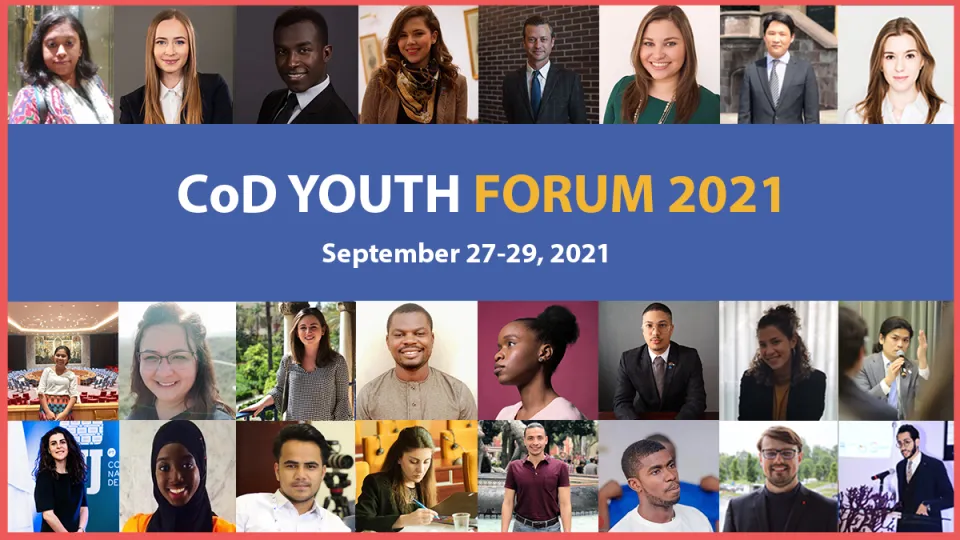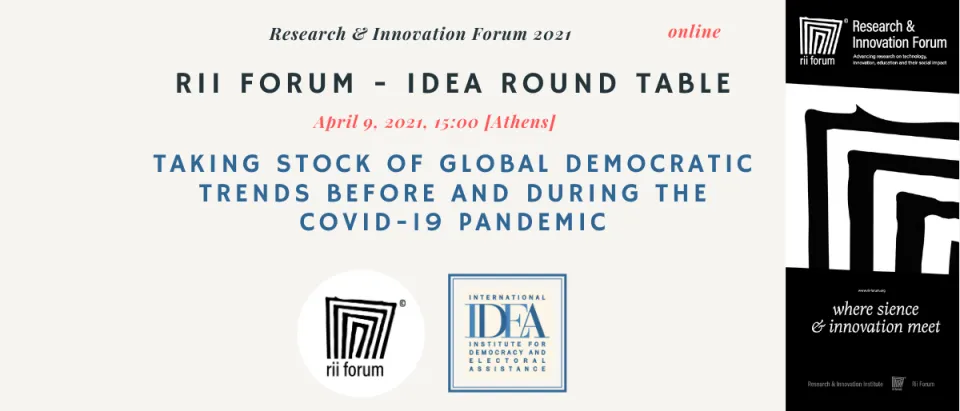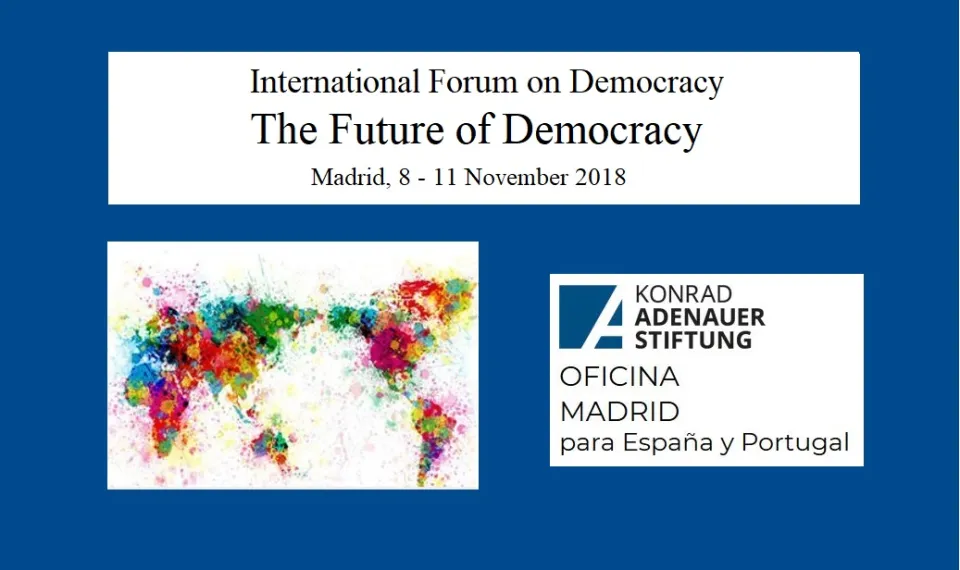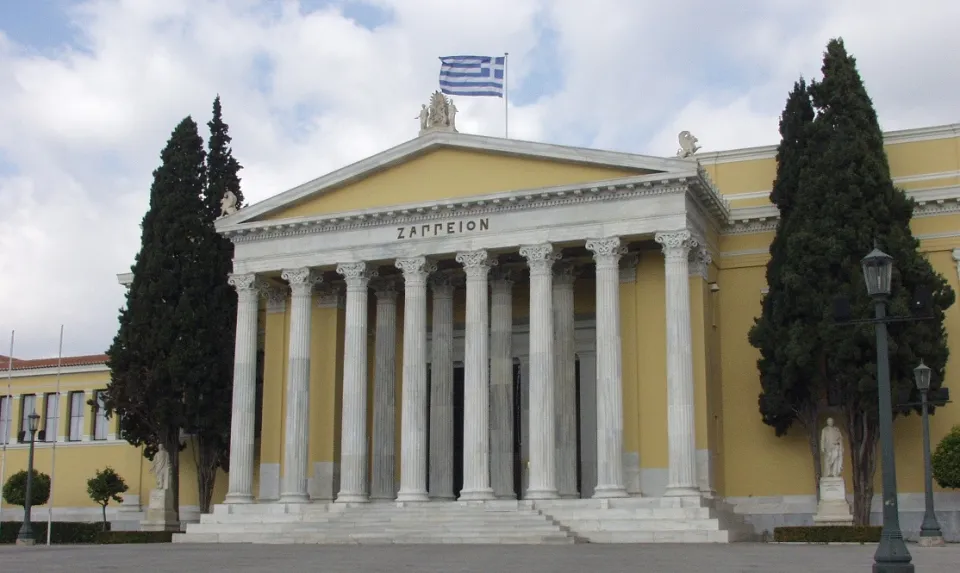Democracy and rule of law in crisis?
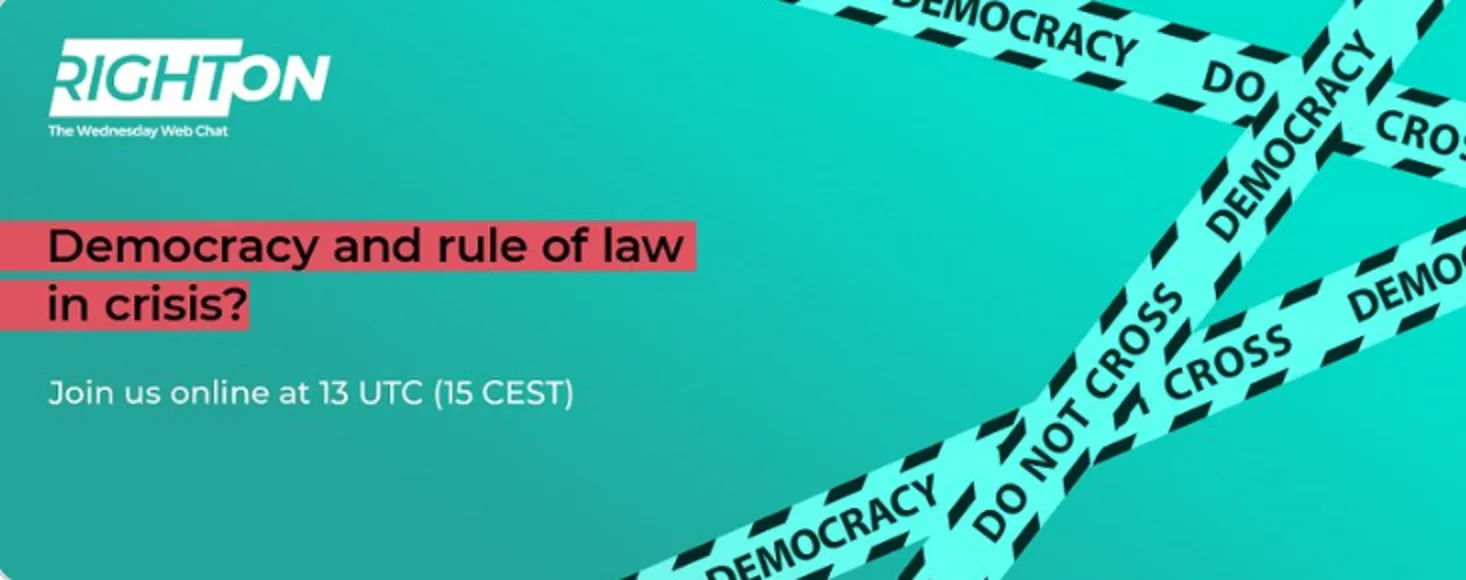
The outbreak of the Coronavirus is placing greater strain on democracy and the rule of law.
While the question of democracy and the rule of law in crisis has been around for quite some time, the misuse of personal data, the surge in fake news, extensive surveillance, and human right violations amid COVID-19, have all further undermined faith in the democratic process and the idea of equality before the law. In a similar manner, the recent adoptions of emergency laws and decrees worldwide in the face of an unseen threat have exacerbated doubts in the promptness and robustness of political responses in the world’s democracies.
Additionally, existing inequalities resulting from unequal socio-economic opportunities have excluded millions from democratic decision-making and consequently added an additional layer of complexity.
‘Right On’ web chat will address ways to tackle the global health crisis without undermining democratic practices and will reflect on the consequence of COVID-19 on the future of democracy and the rule of law.
Speakers
- Ms Ilze Brands Kehris is the Assistant Secretary-General for Human Rights and heads the UN Human Rights Office in New York. She combines extensive expertise in political science, conflict prevention and human rights, with a specialisation in minority rights, and long-standing experience in intergovernmental fora and with civil society organizations. From 2017 to 2019, she served as independent Expert Member of the UN Human Rights Committee, the treaty body monitoring the implementation of the International Covenant on Civil and Political Rights. Between 2016 and 2019, she was a senior research fellow at the Raoul Wallenberg Institute for Human Rights and Humanitarian Law, Lund University, Sweden. She has previously held several leadership positions in national and regional level human rights organizations, including as Member and Chairperson of the Management Board of the European Union Fundamental Rights Agency. Brands Kehris also held the positions as Director of the Office of the OSCE High Commissioner on National Minorities, first Vice-President and Member of the Advisory Committee on the Council of Europe Framework Convention for the Protection of National Minorities, and Member of the Management Board and Vice-Chairperson of the Executive Board of the European Union Monitoring Centre on Racism and Xenophobia. She also served as Director of the Latvian Centre for Human Rights.
- Ms Annika Ben David is Sweden’s Ambassador at large for Human Rights, Democracy and the Rule of Law. Prior to assuming this role, she served as Ambassador of Sweden to the Democratic Republic of the Congo. Between 2010 and 2013 she was Head of Section Central, Eastern and Southern Africa at the Africa Department at the Ministry for Foreign Affairs of Sweden. From 2006 until 2010, she served as Counsellor and Deputy Head of Mission at the Embassy of Sweden in Tel Aviv and from 2005 until 2006 she was Counsellor at the Department for Human Rights, International Law and Treaty Law at the Swedish Ministry for Foreign Affairs. She also had the position of First Secretary at the Embassy of Sweden to Tanzania and Second Secretary at the Swedish Embassy to Tel Aviv.
- Ms Annika Silva-Leander heads the Democracy Assessment and Political Analysis (DAPA) unit, which produces International IDEA’s Global State of Democracy Report. Prior to leading the DAPA unit, she was the Senior Adviser to the Secretary-General of International IDEA. Prior to joining International IDEA, Silva-Leander worked for 10 years as a Social Development Specialist at the World Bank in Washington D.C., in Indonesia and in Cambodia. During that time, she conducted analytical work and managed projects on civic engagement and participation, social accountability in governance and service delivery contexts, community-driven development, poverty reduction with marginalized groups and in social protection and public health. She has also done various assignments for UN institutions, including UNICEF and the UNDP. Prior to the World Bank, Silva-Leander worked as a Programme Manager at the AVINA Foundation’s regional office in Costa Rica. She has experience from working in Latin America, South and South-East Asia and Africa. Her research has focused on civic engagement in governance and democratization processes, civil society participation in anti-corruption reform, and social development. Her doctoral thesis analyzed the role of non governmental organizations in anti-corruption reform in Indonesia.
- Prof Yuval Shany is a member of the UN Human Rights Committee and a lecturer at the Geneva Academy of International Humanitarian Law and Human Rights. He also holds the Hersch Lauterpacht Chair in Public International Law at Hebrew University. From 2007 until 2012, he served on the Board of Directors on the Project on International Courts and Tribunals (PICT). In 2011, he was a visiting researcher at Max Planck Institute for International and Comparative Law and from 2009 until 2010, he was visiting professor at Columbia University Law School. He was also a visiting researcher at Amsterdam Center for International Law and gave lectures as a visiting professor at many prominent universities worldwide including the University of Sydney, University of Michigan Law School, Georgetown Law Center and Center for Transnational Legal Studies. He has authored numerous academic publications and books.
Moderator
- Mr Felix Kirchmeier, Manager of Policy Studies, oversees the conceptualization, development and implementation of policy research at the Geneva Academy. He is also the Executive Director of the Geneva Human Rights Platform. Before joining the Geneva Academy, he worked at Friedrich-Ebert-Stiftung where he served as Senior Programme Officer for Human Rights and Development and Focal Point for international human rights projects. There he organized conferences on the development of human rights law and coordinated training on international human rights mechanisms in Geneva and in the field. He holds a master’s degree in Political Science from the University of Freiburg.
- Mr Marc Limon is Executive Director of the Universal Rights Group (URG), a think tank specialising on international human rights policy, with offices in Geneva, New York, and Bogota. Prior to establishing the URG, Marc Limon worked as a diplomat at the UN Human Rights Council between 2006 and 2012. Together with his colleague Subhas Gujadhur (Mauritius), Limon set up the Human Rights Council’s Trust Fund to support the participation of Least Developed Countries and Small Island Developing States. Limon also negotiated agreements and resolutions in the context of the United Nations Framework Convention on Climate Change (UNFCCC), the Economic and Social Council (ECOSOC), the World Trade Organization (WTO), the United Nations Conference on Trade and Development (UNCTAD), and the Global Platform for Disaster Risk Reduction (UNISDR).
